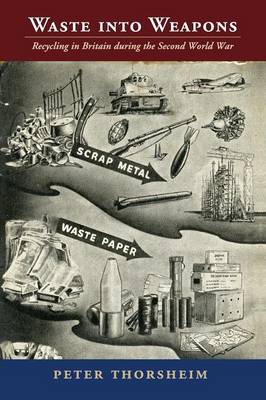Studies in Environment and History
1 total work
During the Second World War, the United Kingdom faced severe shortages of essential raw materials. To keep its armaments factories running, the British government enlisted millions of people in efforts to recycle a wide range of materials for use in munitions production. Recycling not only supplied British munitions factories with much-needed raw materials - it also played a key role in the efforts of the British government to maintain the morale of its citizens, to secure billions of dollars in Lend-Lease aid from the United States, and to uncover foreign intelligence. However, Britain's wartime recycling campaign came at a cost: it consumed items that would never have been destroyed under normal circumstances, including significant parts of the nation's cultural heritage. Based on extensive archival research, Peter Thorsheim examines the relationship between armaments production, civil liberties, cultural preservation, and diplomacy, making Waste into Weapons the first in-depth history of twentieth-century recycling in Britain.
